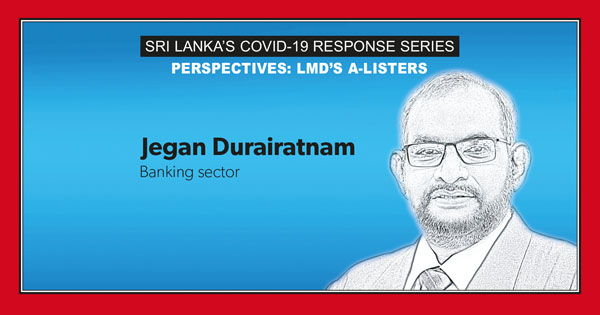CALL FOR CONCESSIONARY BORROWING
A: The unprecedented outbreak of COVID-19 has forced many changes to the way in which businesses and people operate around the world. Given the magnitude of the global pandemic and length of time that will be taken to completely eradicate the virus, it is essential to formulate the ‘new normal’ of operating.
Businesses need to reassess their priorities and identify new opportunities that may arise as a result of changes in socioeconomic behaviour. For example, an intensified focus on digitalisation will be a key aspect going forward. This will enable customers to perform their transactions digitally, adhering to the physical distancing guidelines on the one hand while on the other, it will render working from home more effective and result in improving productivity.
Due to the negative impact COVID-19 would have on economies around the globe, it’s foreseen that certain jobs will perish while the others survive. However, new job opportunities in areas such as healthcare, AI and technology will be created – for example, a shift in resources towards relationship management, advisory services and digital banking in line with the changing landscape is expected in the banking sector.
Q: As for state finances, should we print money despite the obvious repercussions and/or seek more funding from global lending institutions and other channels?
A: In the past two years, the Central Bank of Sri Lanka has maintained a robust monetary policy and managed inflation. With the challenges of the COVID-19 pandemic and in the absence of options to raise the required funding urgently, the government and monetary authority may be compelled to resort to short-term methods.
Nevertheless, the focus should be on resorting to long-term concessionary borrowings from institutions such as the IMF, the Asian Development Bank (ADB) and our friendly neighbouring countries. This will enable the country to support businesses (especially SMEs) that have been seriously affected by the global pandemic. Sri Lanka’s current discussions with the World Bank, the ADB and the swap arrangement it is set to enter into with the Reserve Bank of India are steps in the right direction.
In the long term, large corporates should also focus on foreign investments – especially for affected sectors such as tourism and exports – to revive their businesses while the government focusses on reviving SMEs in this country.
Q: How do you view Sri Lanka’s COVID-19 response so far? What are the pros and cons?
A: The efforts of the government initially have been extremely proactive to contain the virus. Health authorities including all medical staff together with the armed forces have rendered an exemplary service in this regard.
However, currently we’re at a crucial juncture with the community’s ability to spread COVID-19. Effective communication especially to more vulnerable communities may have prevented this situation to a larger extent.
It is important to reopen the country considering that economic activities are at a near standstill – initially at a regional level and in clusters so that we don’t lose control, while adhering to all the guidelines provided by the health authorities in terms of physical distancing and relevant health and safety measures. This should be done with caution as the repercussions to society as a result would be far greater than that of an extended lockdown.
[wprpw_display_layout id=2]





